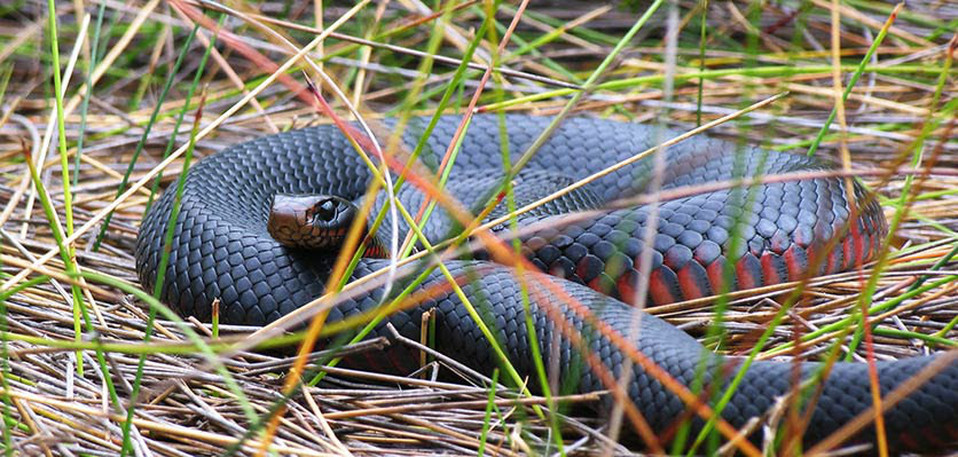Snakes are springing - protect your animals from deadly encounters
11 Oct 2017
This time of year marks the beginning of a rise in snake bites in animals as the warmer weather and drier conditions put an end to their winter hibernation.
As the weather continues to warm up, the Australian Veterinary Association (AVA) is encouraging animal owners to take precautions to help minimise the risk of snake bites and seek immediate veterinary advice if they suspect their animal has been bitten by a snake.
AVA President, Dr. Paula Parker, said that snakes tend to be their most active at the end of the day.
“Snake bites often occur in the late afternoon or early evening, however, it’s important for people to be vigilant throughout the day,” she said.
Dr. Parker said that snakes found in backyards are usually looking for mice or rats to eat.
“Rats and mice can often be found in untidy sheds, or where’s there’s a good supply of wood piles and rubbish. So, it’s a good idea to maintain a tidy garden and shed, ensuring that wood piles are neatly stacked and discarding lawn clippings and mulch rather than keeping it in a pile.
“Outside, keep a close eye out for snakes in bushy areas or near water. It’s best to try and keep horses, cattle, and sheep away from bushy areas. Dog owners should try and avoid these areas when walking their pets at the end of the day and preferably keep them on the lead.
“If you keep your rabbits and guinea pigs in a hutch outside, then you will need to make sure you can keep snakes out of the hutch. Identify and cover all openings which are larger than one centimetre as some snakes have the ability to squeeze through small openings,” she said.
The AVA says it’s important for animal owners to be aware of the signs of a snake bite as owners may not actually see their animal being bitten. Signs of snake bite can vary depending on the snake and the location in Australia. Common signs of a snake bite include:
- Sudden weakness followed by collapse
- Unexplained bleeding or swelling
- Reluctance or inability to walk
- Breathing problems.
Bites from some snakes will cause an animal to collapse, and they seem to recover. This can give false confidence that the animal is okay, but what is really happening is the snake toxins are spreading through the system and wreaking havoc. Within a few hours, other signs start to develop.
“If you think your animal has been bitten, keep your pet calm and contact your vet immediately. The chances of recovery are much greater if treatment is delivered early,” Dr. Parker said.
For further information and requests for interviews contact the AVA media office on 0439 628 898 or media@ava.com.au.
The Australian Veterinary Association (AVA) is the only national association representing veterinarians in Australia. Founded in 1921, the AVA today represents 9000 members working in all areas of animal science, health, and welfare.
